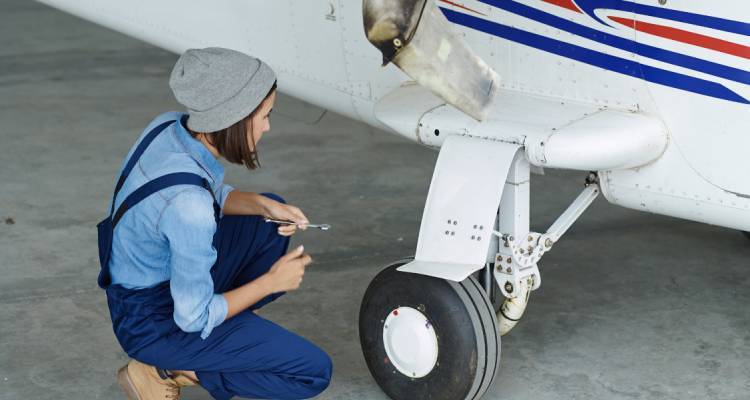
Ensuring Safe Landings: The Importance of Aircraft Tyre Maintenance
When it comes to ensuring safe and smooth landings every time, aircraft tyre maintenance plays a vital role. A well-maintained aircraft tyre not only contributes to flight safety but also extends the lifespan of the tyres, leading to cost savings in the long run.
Understanding the Basics of Aircraft Tyre Maintenance
Aircraft tyre maintenance goes beyond simple inflation. It involves careful inspection for signs of wear and tear, correct inflation, and timely replacements. It's also important to understand the unique characteristics of aircraft tyres. Unlike car tyres, aircraft tyres are designed to withstand heavy loads at high speeds during take-off and landing. However, this also means they are susceptible to different types of damage.
Regular Inspections are Crucial
A crucial aspect of aircraft tyre maintenance is regular inspections. Check your tyres for cuts, cracks, bulges, and any signs of tread wear. Don't ignore any embedded foreign objects such as stones or metal in the tyre tread, as they can cause severe damage.
Another aspect to inspect is the tyre pressure. Under-inflation can cause overheating, potentially leading to tyre failure. On the other hand, over-inflation increases the risk of tyre burst during landing. Hence, it's essential to maintain the correct tyre pressure recommended by the aircraft manufacturer.
Understanding When to Replace Your Aircraft Tyres
Knowing when to replace aircraft tyres is another important factor in ensuring safe landings. Some signs that your aircraft tyres need replacement include worn tread, sidewall damage, exposed fabric or cord, and any cuts or punctures that can't be repaired. Always consult with a qualified mechanic before deciding to replace an aircraft tyre.
Maintenance Tips for Prolonging Tyre Life
To prolong the life of your aircraft tyres, you can follow these simple tips. First, always follow your aircraft manufacturer's recommended tyre pressure. Second, avoid harsh braking and fast taxiing as they can accelerate tyre wear. Finally, ensure your aircraft is stored in a cool, dry place away from chemicals and sunlight, which can degrade rubber over time.
The Role of Professionals in Tyre Maintenance
While basic tyre maintenance can be performed by the aircraft owner, certain tasks should be left to professionals. These include balancing tyres, checking the wheel alignment, and assessing any serious tyre damage. Having a professional involved ensures that your aircraft tyres are in the best possible condition, contributing to the safety of your flights.
Frequently Asked Questions
1. What is the significance of aircraft tyre maintenance?
Aircraft tyre maintenance is critical for safe and smooth landings. A well-maintained aircraft tyre helps maintain flight safety, extend tyre lifespan, and reduce overall operational costs.
2. How frequently should I inspect my aircraft tyres?
Aircraft tyres should be inspected before and after every flight. Regular inspections help identify signs of wear, tear, and any other damage early, allowing for timely maintenance or replacement.
3. When should I consider replacing my aircraft tyres?
Aircraft tyres should be replaced when there's a noticeable tread wear, sidewall damage, exposed fabric or cord, and when there are cuts or punctures that cannot be repaired. It's recommended to consult with a qualified mechanic before making a decision.
Conclusion
In conclusion, aircraft tyre maintenance is a crucial part of ensuring safe and smooth landings. By understanding the basics of tyre maintenance, conducting regular inspections, knowing when to replace tyres, and involving professionals when necessary, you can significantly enhance your aircraft's landing performance and overall safety. Remember, proper care and maintenance of your aircraft tyres is an investment in the safety of your flight operations.
